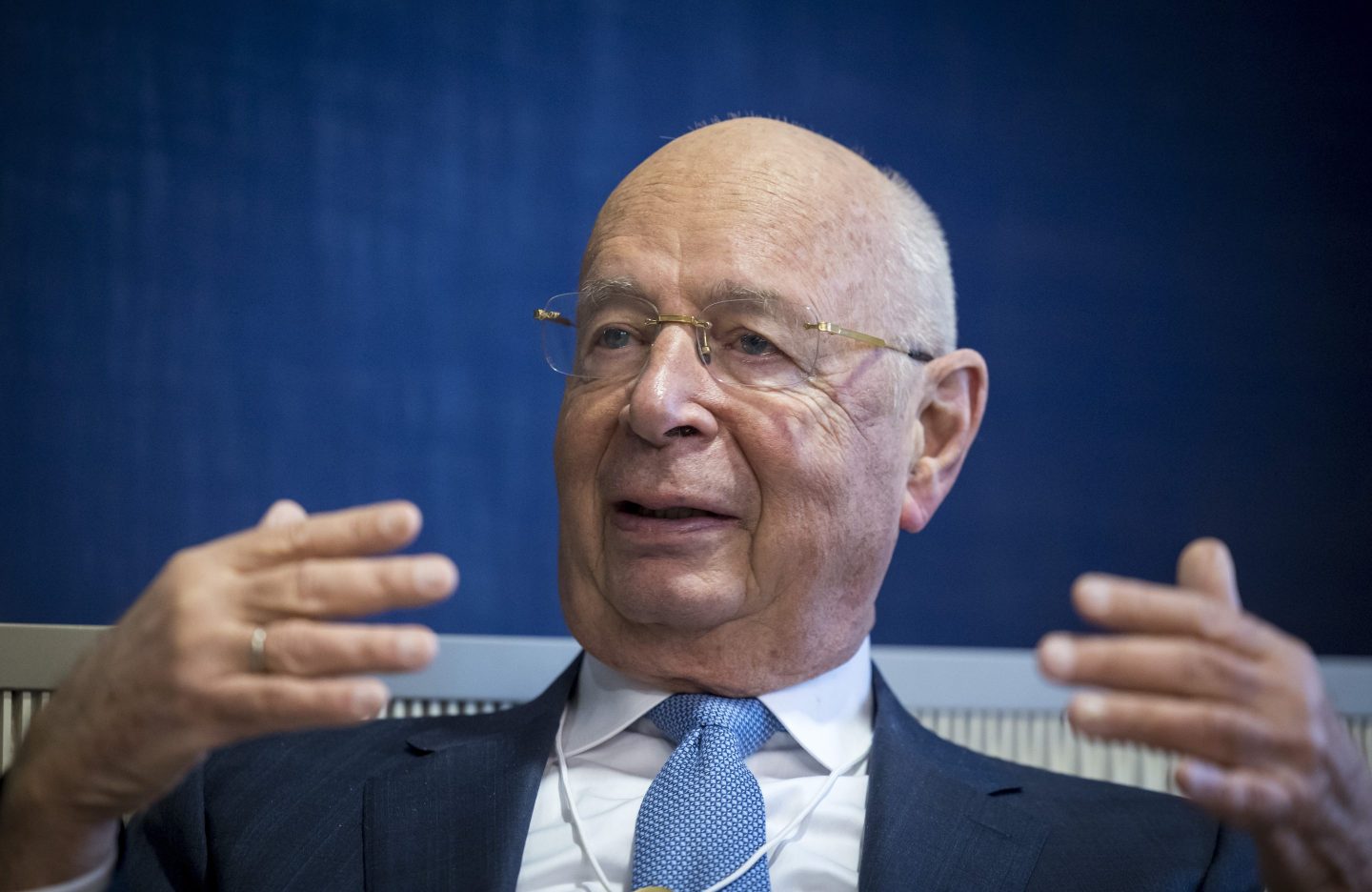Good morning. Peter Vanham here, writing from Geneva.
The stakeholder capital movement is poised to lose two of its champions. Klaus Schwab yesterday announced that he will soon step down as executive chairman of the World Economic Forum. And JPMorgan CEO Jamie Dimon hinted on Monday that his retirement is nearing.
(Disclosure: I worked in Schwab’s office for three years.)
Their departures could signal a changing of the guard in the business world. They were both early advocates of stakeholder capitalism or the idea that CEOs should “lead their companies for the benefit of all stakeholders”—and not just shareholders. But they may leave their posts as the principle remains under fire and faces an uncertain future.
The stakeholder capitalism movement started in earnest in 2019. Faced with pressure for broad business reforms from the likes of Democratic presidential hopefuls Elizabeth Warren and Bernie Sanders, the Business Roundtable, then chaired by Dimon, embraced stakeholder capitalism. (Dimon and others announced their splashy commitment via Fortune.) Around the same time, Schwab doubled down on his “Davos Manifesto,” which said that “the purpose of a company is to engage all its stakeholders in shared and sustained value creation.” When COVID hit, the shift towards stakeholder capitalism seemed unstoppable.
But then the backlash came. When the post-COVID boom ended, many “stakeholder” companies laid off thousands of employees, hiked their prices, and backpedaled on their political activism. At the same time, conservative figures such as Vivek Ramaswamy attacked the stakeholder approach as “woke” and “a scam” with some effect. The Business Roundtable and Dimon stopped overtly celebrating their stakeholder capitalism commitment. In 2023, WEF scrubbed ESG, a term closely linked to the stakeholder approach, almost entirely from its annual meeting agenda.
In this climate and with Schwab’s and Dimon’s impending exits, where does stakeholder capitalism go from here? I asked IMD Business School dean-elect David Bach yesterday over lunch in Lausanne. He’s still bullish on the concept.
“Stakeholder capitalism took two steps forward [and] one step backward,” he said.
The business world’s sudden embrace of stakeholder capitalism five years ago represents progress, while current anti-ESG, anti-woke campaigns signal a retreat.
The ongoing recalibration has taught companies that stakeholders are diverse and that making a profit is critical regardless of corporate principles. At the same time, he said, issues like climate change or systemic inequities “aren’t going away.”
The result is that companies will continue to act on the social, economic, and environmental issues that are material to them and their stakeholders, Bach predicts. I’d add that the era of loudly professing one’s belief in stakeholder capitalism and ESG is well and truly over, starting with the imminent departures of two of the movement’s loudest voices.
More news below.
Peter Vanham
peter.vanham@fortune.com
Follow on LinkedIn
TOP NEWS
Unmet pledge
ChatGPT developer OpenAI never fulfilled its promise to allot 20% of its computing power to its “Superalignment” team meant to ensure AI safety, sources tell Fortune’s Jeremy Kahn. Team members say that OpenAI leadership consistently denied requests for greater access to the chips needed to train and run AI models. Jan Leike, a member of the team who resigned last week, publicly criticized OpenAI for pursuing “shiny products” over safety. Fortune
Does Tesla need a ‘full-time CEO’?
A group of Tesla investors including New York City pension funds are urging other shareholders to vote against CEO Elon Musk’s $46 billion pay package. Tesla’s board “has yet to ensure that Tesla has a full-time CEO," the investors argue in a letter signed by New York City Comptroller Brad Lander, who advises the pension funds. Tesla’s board is pushing shareholders to approve the pay package, saying that Musk fulfilled its aggressive targets on revenue and profitability. Fortune
A new China price war
China’s AI companies are slashing prices for their models as they try to get ahead of the competition. Last week, ByteDance claimed its recently-unveiled prices for AI were 99% below industry norms. Yesterday, Alibaba cut the price of its AI services by as much as 97%; Baidu followed up hours later by making some of its AI products free. Bloomberg
AROUND THE WATERCOOLER
Scale AI secures $1B funding at $14B valuation as its CEO predicts big revenue growth and profitability by year-end by Sharon Goldman
Red Lobster is blaming its bankruptcy on top shareholder and its ex-CEO, saying an $11M all-you-can-eat-shrimp fiasco contributed to its demise by Eleanor Pringle
The starting salary for a new American Airlines flight attendant is low enough to qualify for food stamps in some states by Sunny Nagpaul
20-year health insurance exec says don’t look to his industry to solve the medical system: ‘You cannot fight financial self-interest’ by Marco Quiroz-Gutierrez
Meta and Coinbase link up with Match to fight pig-butchering, romance scams by Jeff John Roberts
This edition of CEO Daily was curated by Nicholas Gordon.
This is the web version of CEO Daily, a newsletter of must-read insights from Fortune CEO Alan Murray. Sign up to get it delivered free to your inbox.













